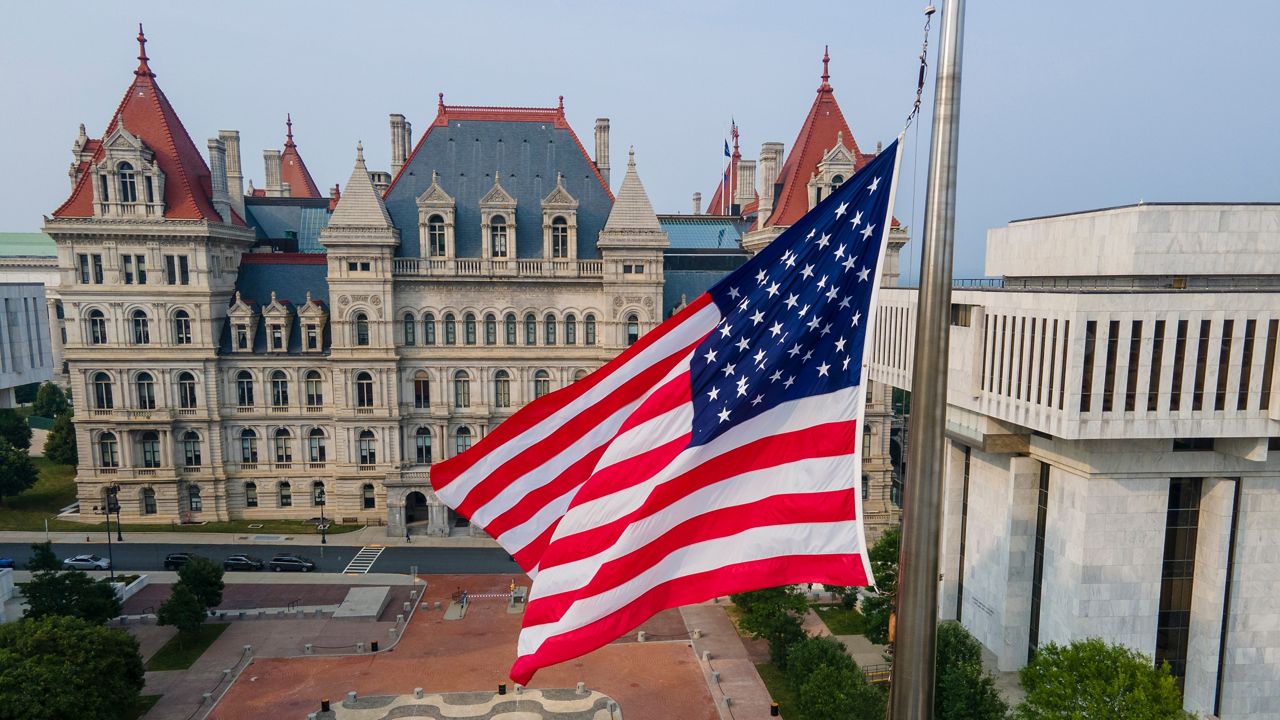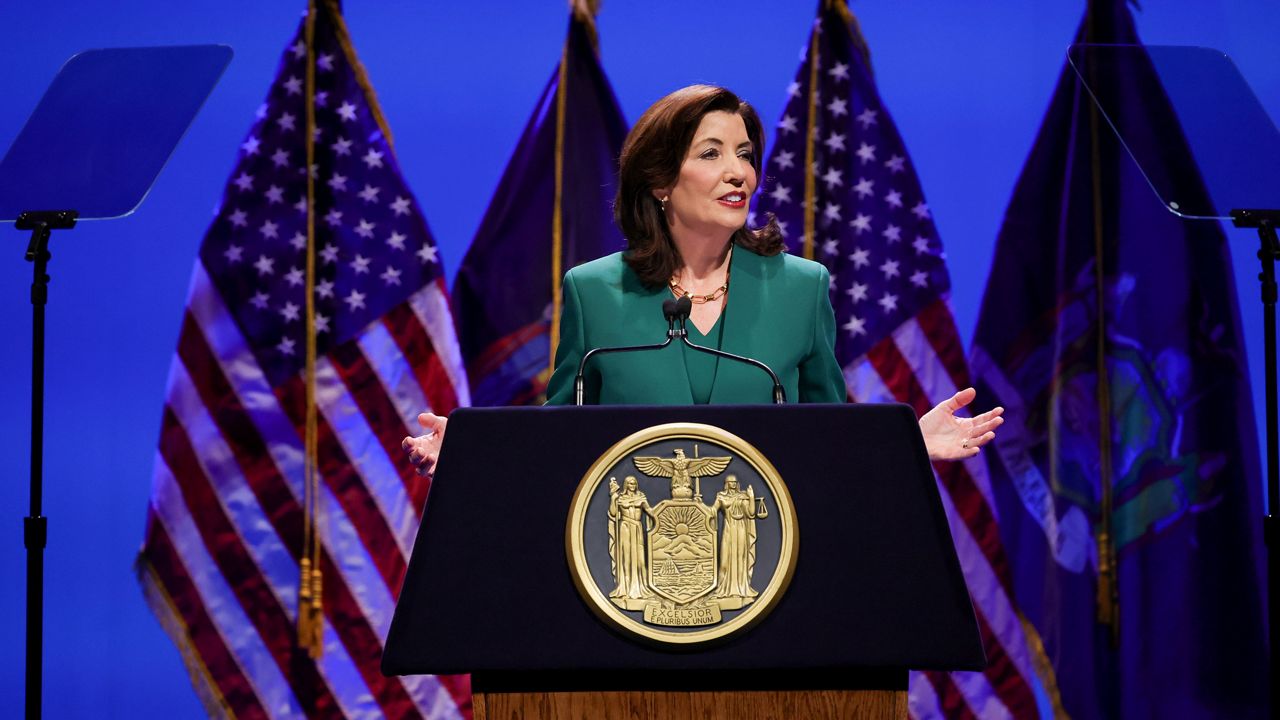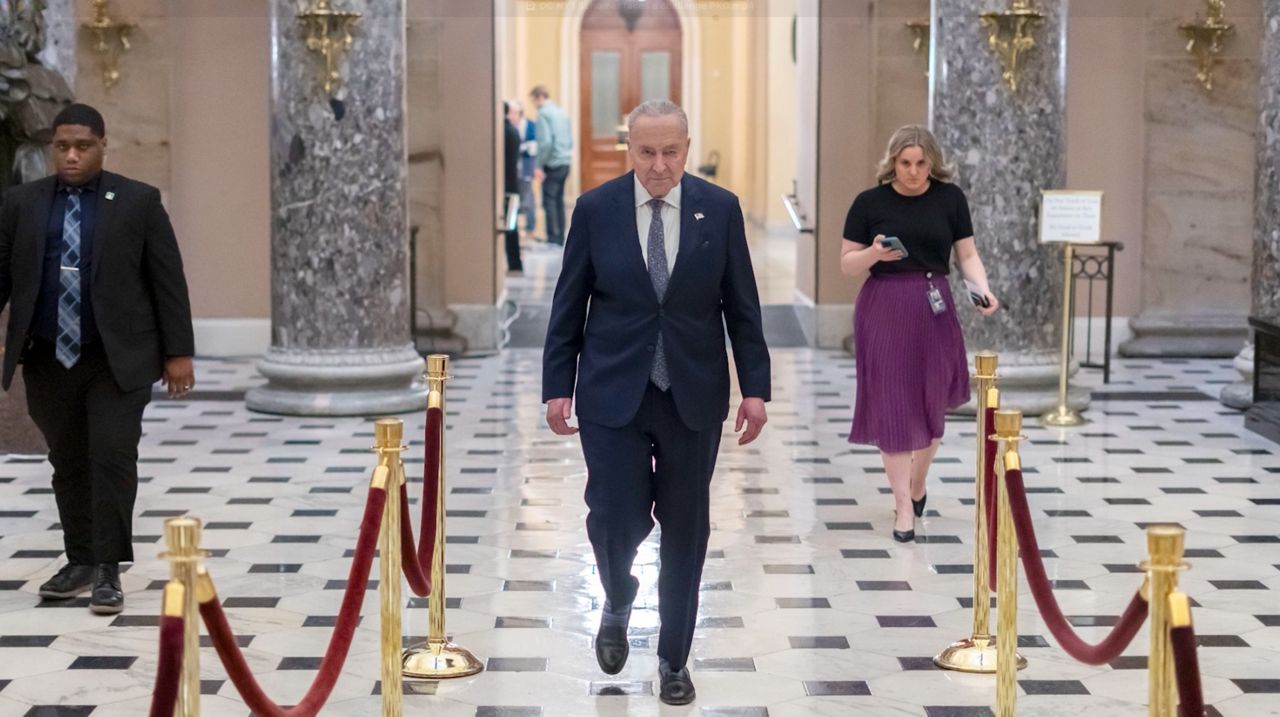The clock is ticking on just over 100 bills that Gov. Kathy Hochul has to decide to sign or kill before the end of the year.
One bill sitting on her desk would ban businesses from forcing employees to sign non-compete clauses, which businesses argue protects company secrets should a worker jump ship to a competitor.
New York courts have previously ruled in certain cases that non-compete clauses are tough to enforce, but those in the financial, law and tech sectors are fighting to keep them in place.
The governor said she wants to meet on middle ground: announcing she’d prefer to keep a non-compete ban in place for employees making over $250,000.
“The other thing I have to balance is making sure that we don’t drive businesses from our state because there isn’t a competitive environment,” said Hochul during an unrelated press event in Lower Manhattan Thursday.
New York already has a tough business climate. Business leaders—already griping about taxes and labor costs—are railing against a bill that, if signed into law, they said would further chip away at their competitive edge.
“There are a group of executives, there are a group of employees that are highly compensated who are important to the structure of a business and losing them is going to hurt a business,” Paul Zuber, executive vice president at the Business Council of New York State, told NY1.
Non-compete clauses are sometimes wedged into employment contracts. They restrict where and when a person can go work after they leave a job.
“You work in car rental, you work as a tattoo artist, you work as a doctor or engineer—when you try to leave your job you’re often told by HR that you can’t leave and if you do leave, you can’t work anywhere within a geographic boundary,” said bill sponsor, State Sen. Sean Ryan.
Supporters—like the actors’ union SAG-AFTRA—argue keeping those restrictions hurts New York’s economy and could sour employees enough to make them leave the state altogether. Zuber contends it’ll do just the opposite.
“It’s also going to hurt the New York economy because companies aren’t going to want to locate in New York when they know that can happen.”
Hochul offered a compromise on Thursday when asked by NY1.
“I’m not so worried about the very wealthy, well taken care of wall street, hedge fund financiers and top paid lawyers. They can take care of themselves,” Hochul said. “So I have to strike the balance to make sure we take care of lower and middle-income workers up to say $250,000.”
Under the new proposal, companies would still have the power to negotiate contracts without restrictions with higher earners.
Hochul and the state legislature would have to approve the new rules and re-pass the bill after Jan. 1.
Meanwhile, the Federal Trade Commission sent a letter to Hochul saying that research shows that non-compete clauses should be banned nationally.
“For example, I’m working for a pharmaceutical company and I may be working on a drug and I’ve been working on a drug for the last ten years,” Zuber said. “Now all of the sudden I leave. I didn’t necessarily take trader secrets, but I have ten years of trade secrets inside my head and inevitably I will come to the discovery that I did at the other company. That’s a very big problem.”
The governor’s pivot comes at a time when she’s facing unfavorable economic headwinds. The state predicts lower than expected tax revenue and Hochul is footing the bill for much of the city’s migrant costs. She’s also worried about people leaving the state because of housing costs.
“People are leaving our state because they can find lower-cost housing in places like Florida and Texas, but also cold weather places that have the same tax structure as we do like Connecticut and New Jersey,” Hochul said.









